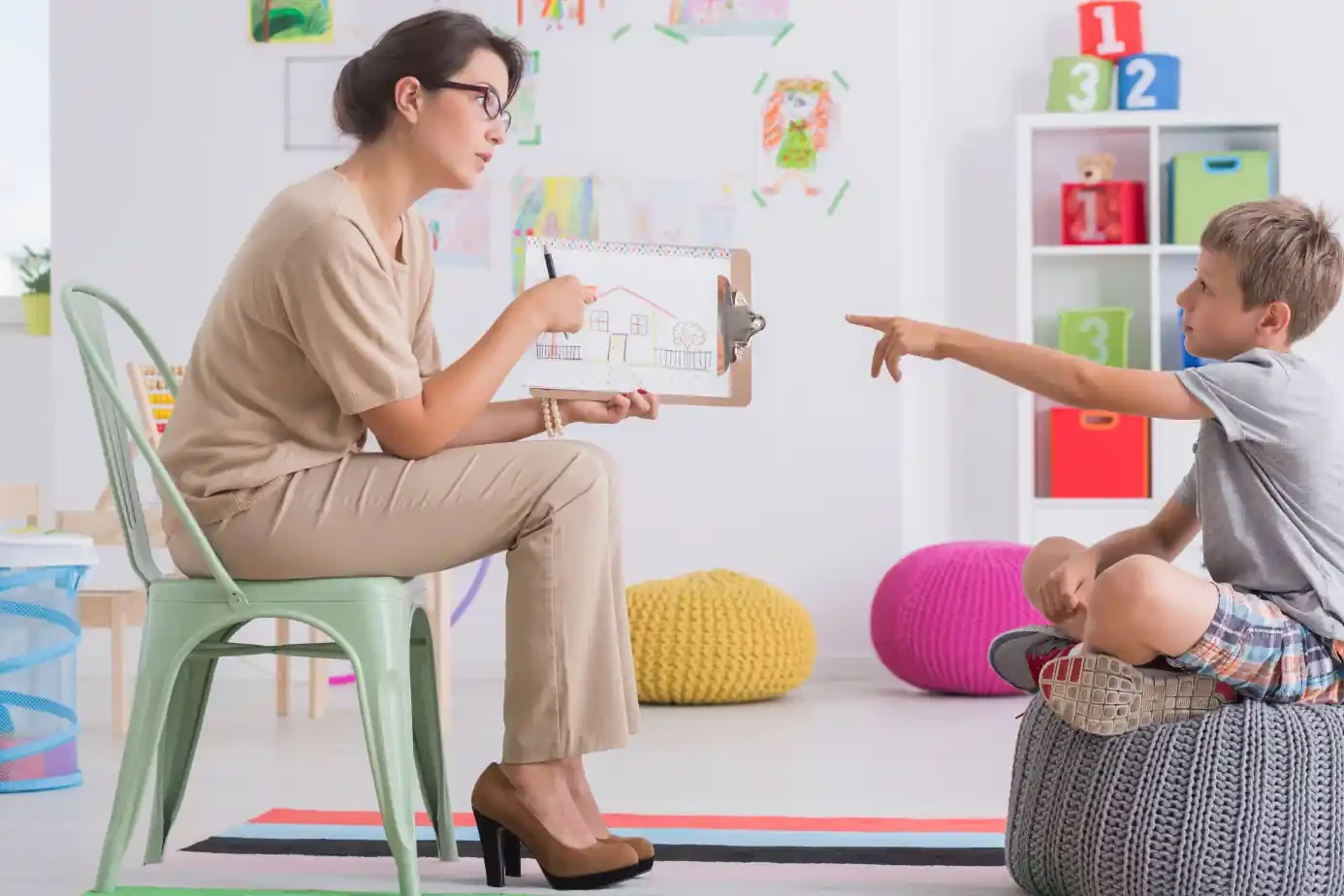Ever tried to talk to your partner and ended up feeling more alone?. In our marriages, communication is key to a happy and lasting relationship. But, as life gets busier, we might start to miscommunicate more.
Many couples struggle to feel heard and understood, even in loving relationships. A lot of it comes down to how we communicate, not just what we say.
In fact, strong communication skills in marriage are what often separate a connected couple from one growing apart.
In this blog, we’ll explore what good communication really looks like, the science behind it, and actionable steps to build it with your partner. If you’ve ever asked how to feel closer through conversation, you’re in the right place.
Table of Contents
ToggleWhy Communication is the Cornerstone of a Strong Marriage?
Healthy relationships don’t just happen, they’re built, word by word. Let’s understand how communication shapes everything.
What Research Shows: Marriages That Talk Well, Last
When couples communicate well, they’re more likely to stay together. According to The Gottman Institute, 69% of marital conflicts are never truly resolved. Instead, they’re managed through smart, respectful communication.
That means it’s not about fixing every issue, it’s about learning to talk through them without tearing each other down.
Emotional Safety, Trust, and Connection Begin with Communication
If your partner feels judged or ignored, emotional safety breaks. Here’s what communication builds:
- Trust: Speaking openly and honestly shows reliability.
- Connection: Sharing your thoughts creates closeness.
- Safety: Knowing you can talk without fear of attack keeps you secure.
A simple kind word or pause to listen can make your spouse feel seen.
What Poor Communication Really Sounds Like in Daily Life?
It’s not always yelling. Poor communication often sounds like:
- “You never listen to me.”
- Lack of active listening
- Using accusatory “you” statements instead of “I” statements
- Ineffective nonverbal communication, such as closed body language
- Difficulty expressing empathy and understanding each other’s perspectives
- Reluctance to compromise or find middle ground during conflicts
These habits wear down a marriage fast.
Overcoming these challenges is key to a strong marriage. By talking openly and honestly, couples can connect deeper, solve conflicts, and be happier together.
Mastering Communication Skills in Marriage
This is your toolkit to better conversations.
Active Listening: What It Is and How to Practice It?
Active listening is more than hearing. It means focusing, understanding, and showing you care.
- Stop multitasking; give your full attention
- Use eye contact and nod to show you’re engaged
- Reflect back: “So you’re saying you felt ignored?”
It makes your partner feel heard and respected.
Validation: How to Make Your Partner Feel Truly Heard?
You don’t have to agree, but you do need to validate.
- Say things like: “That makes sense” or “I can see how you feel that way”
- Avoid judging or correcting right away
- Focus on their emotions, not just their words
Validation builds emotional closeness instantly.
Expressing Without Blaming: “I” Statements vs “You” Attacks
The way you start a sentence changes everything.
| Instead of This | Say This |
|---|---|
| “You never care.” | “I feel unimportant when you don’t check in.” |
| “You always forget.” | “I get anxious when I have to remind you.” |
“I” statements share your feelings without blaming, which keeps defensiveness low.
Nonverbal Cues: Eye Contact, Tone, and Body Language
Sometimes your face speaks louder than your mouth.
- Eye contact shows sincerity
- Tone of voice adds meaning (calm vs harsh)
- Body language shows openness or tension
Nonverbal cues shape how your words are received.
Science-Backed Strategies to Improve Marriage Communication
Want evidence-based results? Try these proven strategies.
The 5:1 Positivity Ratio
Gottman’s research found successful couples have 5 positive interactions for every 1 negative one.
- Laugh at each other’s jokes
- Say “thank you” often
- Share small moments of joy
These positive deposits build emotional savings for harder times.
Daily Check-Ins: 10-Minute Rituals to Reconnect
Life gets busy. Short daily check-ins help keep you close.
- Ask, “How was your day, really?”
- Share a worry or win
- Hold hands while you talk
Consistency beats length. Ten minutes a day can change everything.
Humor and Appreciation Defuse Tension
Couples that laugh together stay together.
- Use humor to lighten tense moments
- Praise small efforts (“Thanks for picking up dinner”)
- Show affection even during stress and help in reducing stress
Appreciation softens hard conversations.
Building Shared Meaning and Rituals
Rituals give your relationship structure and shared values.
- Sunday coffee chats
- Weekly walks
- Saying goodnight intentionally
These little acts keep couples feeling “in it together.”
Practical Communication Exercises for Couples
Start small. Practice makes progress.
The Speaker-Listener Technique
This keeps conversations clear and fair.
- One speaks, the other listens without interrupting
- Then the listener repeats back what they heard
- Switch roles
It improves understanding and prevents arguments.
The Weekly Relationship Meeting Agenda
Plan 30 minutes each week to talk, not argue.
- What went well this week?
- What could be better?
- What do you need from me?
This creates a safe space to check in regularly.
Love Map Questions
These deepen emotional knowledge.
- What’s stressing you out right now?
- What’s one thing that would make your week easier?
- What’s your favorite memory of us?
The Gottman Method uses “love maps” to strengthen connection.
Emotional Bid Recognition & Response
When your partner reaches out emotionally—respond.
- A smile, a hug, or even a nod counts
- Ignored bids make partners feel rejected
- Responding builds intimacy over time
Catch these small moments. They matter more than you think.

When to Seek Communication Therapy in Marriage
Sometimes you need more than advice, you need help.
Red Flags You’re Stuck in a Toxic Loop
- Repeating the same fights with no resolution
- Feeling more like roommates than lovers
- Fear of talking honestly
These are signs of poor communication in marriage that shouldn’t be ignored.
What to Expect in Couples Therapy?
A good therapist:
- Helps you talk without escalating
- Teaches techniques for better dialogue
- Unpacks hidden emotional blocks
It’s not about blame. It’s about building better habits.
Communication-Focused Therapies That Work
These are backed by science:
- CBT (Cognitive Behavioral Therapy) for thought patterns
- EFT (Emotionally Focused Therapy) for emotional bonding
- The Gottman Method for practical communication
These approaches make communication therapy for couples highly effective.

Getting good at reading and responding to nonverbal cues can make your marriage happier. Remember, it’s not just about what you say. It’s also about how you say it and the silent messages you send.
Keeping Empathy Alive Through Life Changes
As life shifts, stay soft with each other.
- New parents? Talk through the stress.
- Aging parents? Name your fears together.
- Career shifts? Be teammates, not rivals
Healthy communication in marriage adapts with time.

Setting Boundaries and Respecting Each Other
Setting and respecting boundaries in marriage is key for a happy relationship. Boundaries let spouses know what each other needs and limits. This prevents fights and confusion.
It’s important to be clear about what we can and can’t accept in marriage. We should tell our partner our limits clearly and kindly.
Respecting each other’s boundaries builds trust and understanding. When we respect our spouse’s limits, we show we care about their happiness and our relationship’s health. This makes us feel safe and secure together.
Boundaries are vital in how we talk to each other. They make sure both partners feel valued and listened to. This way, we can handle disagreements better and get closer.
Setting and respecting boundaries takes time, patience, and understanding. By doing this together, we make our marriage stronger and more rewarding.
Conclusion
Effective communication in marriage is key to a happy and fulfilling relationship. By learning strategies like active listening, using “I” statements, and understanding each other, couples can improve their communication skills. This leads to many benefits in marriage.
Regular check-ins, setting clear boundaries, and seeking help when needed can make communication better. With effort and practice, couples can build a strong partnership. They can solve problems together and grow closer emotionally.
Working on communication in marriage takes time, but the benefits are huge. By focusing on talking well, we lay the groundwork for a life filled with love, understanding, and support for each other.
FAQ
What is the importance of communication in marriage?
Communication is key in any successful marriage. It lets spouses share their thoughts and feelings. It’s crucial for intimacy, trust, and solving problems together.
What are some common communication challenges that married couples face?
Common issues include not listening well, using “you” statements, and poor nonverbal cues. Couples also struggle with empathy and finding common ground.
How can active listening improve communication in marriage?
Active listening means fully engaging with what your spouse says. It’s about noticing their tone and feelings. This approach helps improve communication and strengthens your bond.
What is the difference between “you” statements and “I” statements, and how can using “I” statements improve communication?
“You” statements can make your spouse feel attacked. “I” statements, like “I feel” or “I need,” express your feelings without blame. This can make your spouse feel heard and understood, leading to better communication.
How can mastering nonverbal communication help improve communication in marriage?
Nonverbal cues like facial expressions and body language say a lot. Understanding and responding to these can improve how you communicate. It helps you connect more deeply with your spouse.
Why is empathy important for effective communication in marriage?
Empathy lets you understand and share your spouse’s feelings. It’s key for good communication. It makes your partner feel heard and supported, deepening your connection.
What are some practical tips for improving communication skills in marriage?
Useful tips include listening actively, using “I” statements, and paying attention to nonverbal cues. Being empathetic and open to compromise also helps.
How can compromise and conflict resolution help improve communication in marriage?
Compromise is vital for good communication. It means finding solutions that work for both. Healthy conflict resolution involves understanding each other and avoiding blame.
Why are boundaries important for healthy communication in marriage?
Boundaries respect each other’s needs and prevent conflicts. Setting them means being clear about what you can and can’t accept. Respecting these boundaries keeps your relationship healthy.
Source Links
- https://freedmarcroft.com/10-ways-to-improve-communication-in-your-marriage-and-strengthen-your-relationship/ – 10 Ways to Improve Communication in Your Marriage and Strengthen Your Relationship
- https://www.marriage.com/advice/communication/4-tips-for-improving-communication-in-a-marriage/ – 15 Ways on How to Improve Communication in Marriage
- https://www.oneeducation.org.uk/communication-skills-in-marriage/ – Marriage Advice: The 8 Communication Skills of Happy couple
About The Author

This article is medically reviewed by Dr. Chandril Chugh, Board-Certified Neurologist, providing expert insights and reliable health information.
Dr. Chandril Chugh is a U.S.-trained neurologist with over a decade of experience. Known for his compassionate care, he specializes in treating neurological conditions such as migraines, epilepsy, and Parkinson’s disease. Dr. Chugh is highly regarded for his patient-centered approach and dedication to providing personalized care.
→ Book a consultation to discover which remedies suit your needs best.




